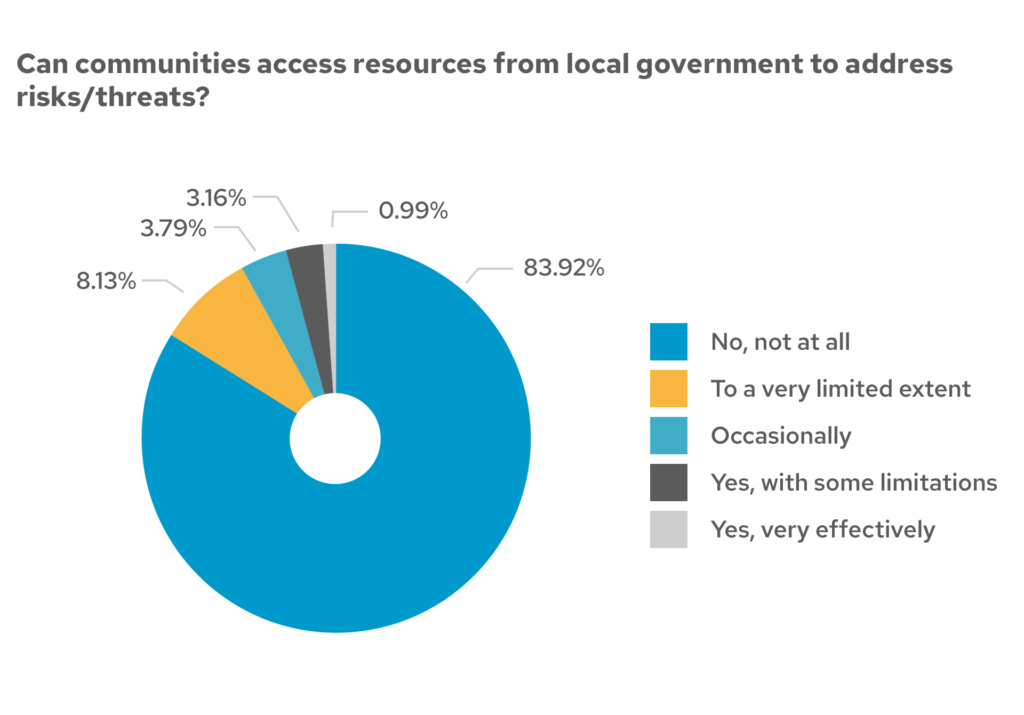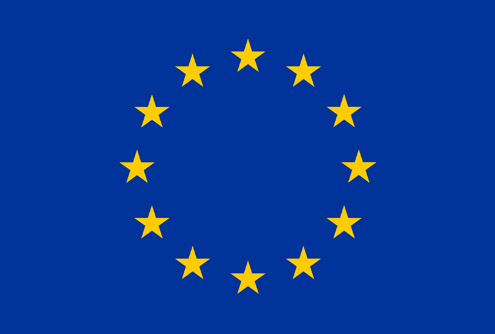VIEWS FROM THE FRONTLINE
Peru
We’re working with 15 communities in Peru to ensure that development is informed by the perspectives of people most at risk.
As part of our global Views from the Frontline programme we have surveyed community members, civil society organisations and government representatives across the country. Here we present our key findings, conclusions, activities and impact.
Random household surveys
Civil society surveys
Local government surveys
Key findings and conclusions at the national level
- There is a lack of coordination between local government and community members which affects development actions aimed at reducing risk/threats
- Communities and civil society organisations are not included in the process of planning, implementation, and evaluation of risk
- Communities cannot easily access government resources to deal with risks or threats

Surveys undertaken in Peru
Our Views from the Frontline surveys in Peru were undertaken in 2019.
Who was surveyed?
We surveyed 856 random households, 127 civil society organisations, 159 local government representatives, and undertook 74 community consultations.
Risk locations prioritised
We prioritised two risk areas:
- Apurimac
- Cusco
Communities surveyed
We surveyed people from 15 communities: Huancaray; Ataccara, Pampamarca, Ñahuinpuquio y Ccanccayllo; Pampachiri; Villa Santa Rosa Ischuorcco Yanaccma; Pulperia, Marcobamba Ccallocco; Ocobamba; Maucallaccta; Saylla Zona de Condebamba baja y aledaños; Zona Nor Occidental zona baja de la microcuenca de Camino Real; Lucre; Oropesa; Urcos; Ccoñamuro y anexos; Ccatcca; and Huarahuara.
Our impact
Activities undertaken in response to community-level findings and conclusions
- Provided supplies to improve and protect crops affected by drought or hail storms in order to address food insecurity
- Formed community committees for emergency management and disaster risk reduction
- Trained community civil defence brigades
- Created mechanisms and spaces for dialogue between authorities and public officials and community members and leaders
Impact of activities
- Increased coping mechanisms for emergencies and improved disaster risk reduction
- Increased food security of communities through appropriate farming mechanisms
- Community members actively participated in community level action planning, assessment, implementation and monitoring, led by the government, to address disaster risks and threats
- Increased understanding by local government on the need to include community members in community development plans
Ready, set, go: community response against emergencies in Peru
Ccatcca, a district in Peru, faces several climate-related threats such as hailstorms, intense rains, weather changes, drought, and forest fires. These risks destroy forest cover, wildlife, and cause air pollution.
PREDES, a Views from the Frontline (VFL) partner organisation in Peru, led the process of developing a Ccatcca Community Committee on emergencies and disasters. The committee, composed of both male and female volunteers from ‘neighbourhood councils’ was equipped with protective clothing and tools from VFL seed funds.
The newly formed committee organised a Motivation and Awareness Workshop in collaboration with the Civil Defence Office of the District Municipality of Ccatcca. The workshop encouraged community members to participate in disaster management capacity-building programs and subsequently, an awareness meeting was held.
Today, the committee is equipped, empowered, and motivated to execute all activities in their local disaster risk reduction action plan.
Our project partners in Peru
Our Views from the Frontline programme is implemented by GNDR member organisations and partners in the country.
National coordinating organisation
- Practical Action
Partner organisations
- Paz y Esperanza
- Centro Guaman Poma de Ayala
- PREDES
View all data from Peru
You can view all our Views from the Frontline survey data using our data dashboard. You can also learn more about our methodology for selecting at-risk areas and survey respondents.
Project funded by
European Union

Our Views from the Frontline project is funded by the European Union (EU). Content related to this project on our website was made possible by the support of the EU. All content is the sole responsibility of GNDR and does not necessarily reflect the views of the EU.
View their websitePhoto credit
Image by lauraelatimer0 from Pixabay.